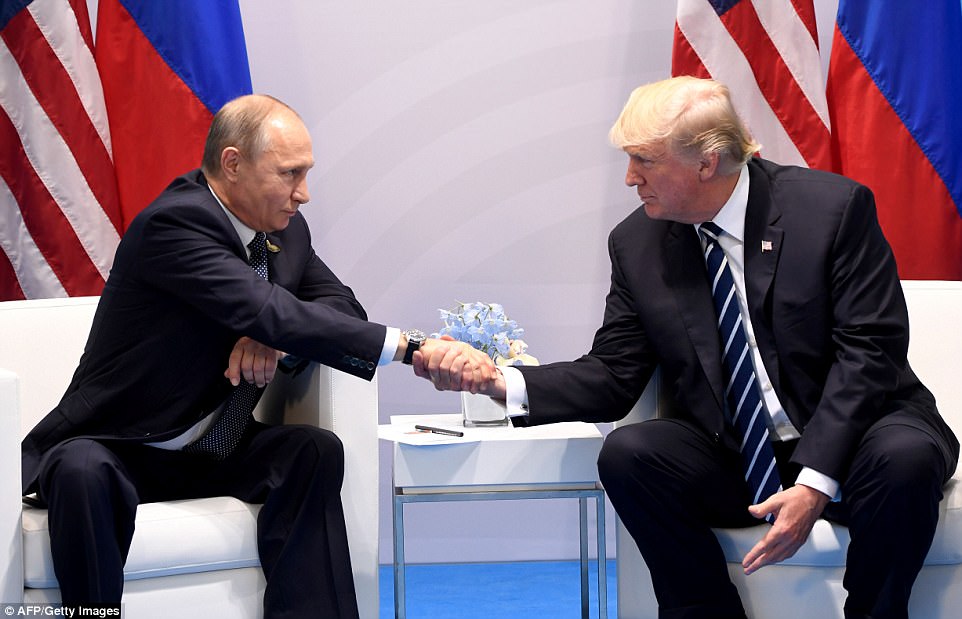Special to WorldTribune.com
Marcus Wolf, “the man without a face”, infamous East German intelligence operative who once put a Communist spy into West German Chancellor Willy Brandt’s bed, has commented pithily on Russian Prime Minister Vladimir Putin.
Wolf doubts Putin lived in Dresden for 15 years as liaison between the Soviet KGB and the Communist East German spies. He said that Putin couldn’t have been important if he, Wolf, as the East Berlin regime’s external security apparatus boss, had not known him.
On the other hand, Wolf admitted an accomplishment of a good spy is to make those around him think he is a mediocrity – and Putin certainly accomplished that. That’s been the assumption for why the former Moscow leader and strongman Boris Yeltsin chose him as a successor.

Those observations help explain the difficulty American leadership has dealing with Putin as head of the Russian state. His ambitions are clear: Putin wants to restore Russia to its former Soviet glory.
No Communist, he has nevertheless said that the fall of the Soviet Union was the greatest catastrophe of the 20th century. Whatever the odds, Putin dreams of rebuilding a Russia that can compete with the U.S. as a world superpower. That means incorporating eastern and central Europe, even when he risks retribution from the West.
On the other hand, in an increasingly complex world of alliances, Washington looks to Putin to help fight Islamic terrorism, an equally great threat to American security. He has lent his air force to Syria’s Basher al Assad to defend that tyrant against a rebellion led by Washington’s chief terrorist enemy, ISIS. But Washington and its allies are dedicated to ousting al Assad as a menace to Mideast stability.
Furthermore, Putin’s war on Islamic extremists is compromised by European Russia’s collapsing birthrate making Moscow increasing dependent on Moslem military recruits from the Russian Federation’s Central Asian republics.
Putin’s survives near bankruptcy with oil and gas exports mostly to Western Europe and Japan.
But the high energy prices of yesteryear are only a memory. U.S. technology has found unanticipated huge new reserves in shale deposits at home and around the world. [When Saudi Arabia tried to undercut American pricing with its own vast oil reserves, U.S. oilmen upped their productivity with a technological ante.] There’s a pretty good chance that the U.S. will again take up its prewar and early post-WWII role as a net energy exporter.
Putin’s pretensions to superpower status, however, do have a basis. Although its conventional military badly eroded when the Communists imploded in 1990, Moscow has an arsenal of nuclear and other weapons of mass destruction. Putin rattles these from time to time. He reminds Washington that while it can generally round up an anti-Putin Western coalition – at least when it is not trying “to lead from behind” as in the Obama years – he still can harness and lead anti-Americanism.
Furthermore, Putin’s Russia is not the old Communists’ continuing failure to create an autarchical economy – independent of the rest of the world.
The dollars that roll in for energy and cannot be absorbed because of Russia’s primitive investment climate almost as quickly roll out to Western Europe and the U.S. It‘s this access to Moscow energy profits that tempts Westerners to play games with individual Russians – often closely associated with Putin’s coterie.
Reports of clumsy Russian efforts to hack and otherwise influence American elections are as much as anything else part of this international chase for profits from its energy exports.
It’s this Putin and his clique that challenges American policymakers trying to maintain world peace and stability. It also explains the contradictory reporting and welter of often unsubstantiated gossip that surrounds the contacts between Russian and Washington players.
Sol W. Sanders, (solsanders@twc.com), is a contributing editor for WorldTribune.com and Geostrategy-Direct.com.

